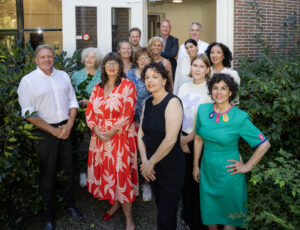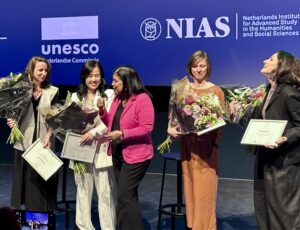Though ‘economic system’ for a long time meant European/American economies in which the ‘economist ideology’ seemed to be the dominant religion of the new world-order, it should not simply be assumed that the logic behind these systems uses universal values. Booming ‘economies’ like China’s and Malaysia’s, are still centrally controlled by respectively a communist and an Islamic ideology. Due to the crisis many democratic (Western) principles – that were in the past sometimes violently exported – seem to wear out in Europe and the United States themselves.
We can’t think of economy without addressing education for the female as well as male populations, in which issues like literacy, linguistic policy, all sorts of training facilities and the like, figure. In this respect most educational system are not only neo-colonial in the language that is used (often those of the former colonizer) but the curriculum is often not in line with people’s daily reality.
Despite the tremendous differences between the various regions and countries, Africa has for long been indicated as the ‘lost’ continent, which implicitly meant ‘the economically lost’ continent. However, Africa’s economy is rising, as the World Bank has demonstrated: the annual report of 2007 mentioned that sixteen countries grew by more than 4,5% a year. In the years thereafter in spite of the crisis on the European and North American continent, this growth continues, though sometimes with undesirable side-effects (for example: land grab).
Programme
In this seminar four NIAS Fellows will each be presenting their research in fifteen minutes, which will be followed by a discussion.
NIAS Fellows will give the following presentations:
Austin Onuoha: The Impact and Possible Responses of African Governments to the Occupy
Wallstreet protests should it commence in the continent.
Elijah Taiwo: Corruption, a Major Drain in the Economy: Another Look at the Legal Provisions
Towards Combating Corruption in Africa.
Enoch Aboh: Multilingualism and Education: How does it relate to Literacy, Linguistic policy,
Women’s education, Training, etc.
Ibrahim Mouiche/ José van Santen: Discussants
During the discussions in this seminar, several issues will be addressed:
What does the American/European economy look like from the perspective of African actors?
How do various countries on the African continent relate to the existing economic and educational system (apart from being just a land or a region with desirable natural resources)? What are the effects of mentioned economic and educational systems on the lives of Africans in the various countries? Who are the actors within the various African countries? How do civil societies react (or could react) to the current crisis on the other continents? What aspects of African economy may represent advances in addressing community issues?
What is the role of states (or governments) in the participation to American/European economic systems and local economic systems?
How, for example, is political power shaped in Africa and what are the implications for the exported ‘democratic model’? How then to define democracy? What is the role of these systems on education and research? How does it affect gender relations? What role does the media has in shaping the political sphere and what is the role of intellectuals?
Can experiences and processes on the African continent tell us something about democracy, systems of education and global economies at large, also in other parts of the world?



